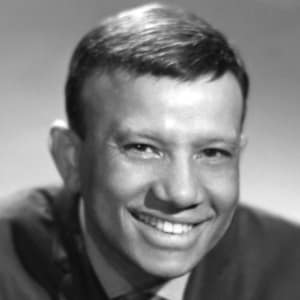
Hal Jackson
Hal Jackson was an on-air host and DJ known for his work in racial integration via radio, and for later co-founding the Inner City Broadcasting Corporation.
Synopsis
Hal Jackson was estimated to be born on November 3, 1915, in Charleston, South Carolina. He went on to integrate radio airwaves with shows in Maryland, New York and Washington, D.C., and programs like The House That Jack Built. Surviving payola charges, Jackson eventually co-founded the Inner City Broadcasting Corporation and later hosted the show Sunday Morning Classics. He died on May 23, 2012.
Background
Harold "Hal" Baron Jackson was born on or around November 3, 1915, in Charleston, South Carolina, to Laura Rivers and Eugene Baron Jackson. His parents died when Jackson was still a boy, and he stayed with other family members for a time before living on his own in a Washington, D.C., boardinghouse at only 13 years old.
Jackson excelled at a variety of athletics at Dunbar High School, including baseball and tennis, and went on to attend Howard University, where he worked as a college sports announcer. Through sheer panache, Jackson secured a spot providing commentary to the crowd at games for the Homestead Grays, who were part of the Negro Leagues.
Starts Own Radio Show
By the end of the 1930s, Hal Jackson had approached Washington, D.C.-based WINX with an idea for an interview program, with management telling him in racial derogatory language that an African American would never work at the station. Jackson then decided to get a sponsor, C. Coley, who owned a restaurant chain, and hired the white advertising agency Erlich & Merrick to secure 15 minutes of WINX airtime.
Jackson arrived right before showtime with his first guest, Mary McLeod Bethune, and got on the air before any of the higher-ups could stop him. The show was an immediate hit and came to be known as The Bronze Review, with Jackson taking on both celebrity culture and political matters with figures like Lena Horne and Eleanor Roosevelt.
Moves to New York
Over the next few months, Jackson expanded his broadcasts to three other stations in the D.C. and Maryland area, and eventually launched his music show, The House That Jack Built, on WOOK. By the mid-1950s, he had relocated to New York, broadcasting at stations WMCA and WLIB and appearing on live WABC shows from Birdland, the legendary New York City jazz club. Jackson became the first African-American host of a continuing radio program on a network. He also helped integrate the on-air roster of WMCA.
Jackson was caught in the payola scandal of the early 1960s and, facing allegations of taking money for song play and doing janitorial work to support his family, lost his WLIB job. Charges were eventually dropped, with some asserting that Jackson was targeted for his active support of Dr. Martin Luther King Jr. (Jackson had been known for previous activism as well, having helped end racist policies at D.C. fashion retailers and forming an all-black basketball team.)
Throughout the rest of the decade, Jackson worked in Philadelphia, New York and New Jersey radio, and co-hosted live concerts. He was also responsible for helming the Miss Black Teen America Contest, which later became known as Talented Teens International.
Purchases WBLS
In 1971, Jackson teamed with Percy Sutton to co-found the Inner City Broadcasting Corporation. They also acquired WLIB (AM) and WBLS (FM), which became the first African American-owned and -operated radio stations in New York City. With DJ and program director Frankie Crocker, WBLS created what would become known as the urban contemporary format, aimed to appeal to a diverse audience. By the end of the decade, WBLS was the top station in the city.
In 1982, Jackson returned to the air to become host of WBLS' popular Sunday Morning Classics, which featured a multi-generational array of genres, including soul, jazz and American standards. He came to host the show with his fourth wife, Debi Bolling.
Jackson received four presidential commendations over the course of his career, in honor of his impact on civil rights, radio and the media industry in general. He was inducted into the National Association of Broadcasters Hall of Fame in 1990—becoming the first African American to earn that distinction—and the National Radio Hall of Fame in 1995. In 2001, Jackson released his autobiography, The House That Jack Built.
The legendary broadcaster died on May 23, 2012, at the age of 96, in New York City.



